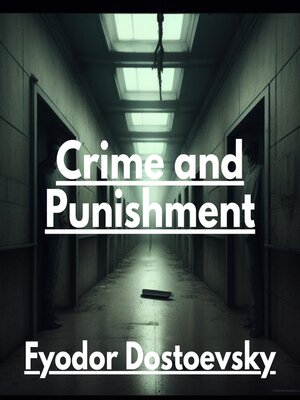
Sign up to save your library
With an OverDrive account, you can save your favorite libraries for at-a-glance information about availability. Find out more about OverDrive accounts.
Find this title in Libby, the library reading app by OverDrive.



Search for a digital library with this title
Title found at these libraries:
| Library Name | Distance |
|---|---|
| Loading... |
One of the supreme masterpieces of world literature, Crime and Punishment catapulted Fyodor Dostoyevsky to the forefront of Russian writers and into the ranks of the world's greatest novelists.
Raskolnikov, an impoverished student tormented by his own nihilism, and the struggle between good and evil, believes he is above the law. Convinced that humanitarian ends justify vile means, he brutally murders an old woman—a pawnbroker whom he regards as "stupid, ailing, greedy...good for nothing." Overwhelmed afterward by feelings of guilt and terror, Raskolnikov confesses to the crime and goes to prison. There he realizes that happiness and redemption can only be achieved through suffering.
Drawing upon experiences from his own prison days, Dostoyevsky recounts in feverish, compelling tones a psychological thriller infused with forceful religious, social, and philosophical elements.
The two years before he wrote Crime and Punishment (1866) had been bad ones for Dostoyevsky. His wife and brother had died; the magazine he and his brother had started, Epoch, collapsed under its load of debt; and he was threatened with debtor's prison. With an advance that he managed to wangle for an unwritten novel, he fled to Wiesbaden, hoping to win enough at the roulette table to get himself out of debt. Instead, he lost all his money; he had to pawn his clothes and beg friends for loans to pay his hotel bill and get back to Russia. One of his begging letters went to a magazine editor, asking for an advance on yet another unwritten novel — which he described as Crime and Punishment.







